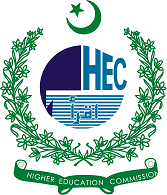Influence of TV Talk Show on Political Engagement of the Viewers
DOI:
https://doi.org/10.58932/MULA0022Keywords:
TV political talk shows, Political engagement, voting efficacy, Voting intentionsAbstract
This quantitative study examined how TV political talk shows affect viewers' democratic behavior and political engagement. The study included 400 participants who completed an online survey regarding their political beliefs and knowledge after watching TV political talk shows. News media consumption and talk show viewership were linked to positive civic behavior and political issues following in a recent study. No association was found between talk show viewing and voting intention. The study did not prove that talk show topics reflect national concerns. The research shows that Facebook and WhatsApp are becoming key news and information sources. Media consumption affects civic involvement and political understanding yet talk programs may not motivate voters or address the most important concerns. Political campaigns may need alternative voter mobilization methods. Talk programs may not reflect people's concerns or solve the biggest problems. Media outlets and talk show hosts may need to rethink their topics and perspectives to address major social challenges.
References
Ali, F., & Rahman, B. H. (2019). Political bias in talk shows: A case of MQM in local bodies election 2015. Journal of Media Studies, 33(1).
Arceneaux, K., & Johnson, M. (2013). Changing minds or changing channels? Partisan news in an age of choice. Chicago, IL : University of Chicago Press.
Ashraf, M. U., Ashraf, M. U., & Imran, M. (2023). Role of political talk shows in creating political awareness among youth: Case of Southern Punjab, Pakistan. Global Digital & Print Media Review, VI : 15-24.
Awais, S., Iqbal, S., Chishti, K. Z., Honey, D. S., & Tareen, D. M. (2021). Resolving or creating conflicts: a case of tv political talk shows . Journal of Xi'an Shiyou University, Natural Sciences Edition, 11(12). DOI 10.17605/OSF.IO/WZNTV
Boudreau, C., & MacKenzie, D. (2020). When political humor doesn't work: Humor appreciation and its effects on television news audiences. Journal of Broadcasting & Electronic Media, 64(2), 201-219. doi:10.1080/08838151.2020.1729269.
Fatima, Q., & Mumtaz, S. (2018). Political TV talk shows in Pakistan: Impact on the students of public sector universities (A Survey of Lahore about Azadi March by Imran Khan). Journal of Politics and International Studies, 4, https://www.prdb.pk/-7721.
Forgette, R., & Morris, J. S. (2006). High-conflict television news and public opinion. (Vol. 59). Sage Publications.
Garrett, R. K. (2009). Politically motivated reinforcement seeking: Reframing the selective exposure debate. Journal of Communication, 59(4), 676–699.
Iftikhar, I., Yasmeen, B., Asghar, S., Tanveer, S., Riaz, S., & Rasheed, K. (2023). Impact of tv talk shows on viewers' political comprehension and voting efficacy. Revista de Educación, 400(4), 121-147.
Javed, T. (2016, December 1). Kashif Abbasi Exposed PPP's Opposition Drama on Panama Leaks Issue. Retrieved from Dailymotion: https://www.unewstv.com/93377/kashif-abbasi-exposed-ppp-s-opposition-drama-on-panama-leaks-issue
Khan, M. K., Aziz, S., & Faran, Q. (2023). Watching habits of current affair programs of private TV channels and public perception about political parties among students of Narowal, Pakistan. International Research Journal of Social Sciences and Humanities, 2(2), 369-380.
Khan, S. A., Qadir, S. A., & Aftab, R. (2019). Managing Agenda Setting in Pakistani Political TalkShows: A Functional Analysis of Interruptions. Global Regional Review, 4(1), 43-54.
Kim, H., & Vishak, J. .. (2020). The Effect of Media Coverage on Public Opinion and Policy Change: Evidence from a Natural Experiment. American Political Science Review, 114(2), 536-550. 536-550. doi: 10.1017/S0003055420000056.
Li, J., & Pang, N. (2019). Who sets the agenda? The effect of online news on political issues in the United States. Social Science Computer Review, 37(3), 384-399. doi: 10.1177/0894439318760569.
McCombs, M., & Shaw, D. L. (2017). The agenda setting theory. Routledge.
Medium. (2021, February 11). Case Study of Press Freedom in Pakistan. Retrieved from Medium: https://fact-read.medium.com/case-study-of-press-freedom-in-pakistan-e6560d065d25
Shehzad, H., Zaman, M., & Zahra, S. (2019). Liking the sound of their own voices: A case of TV anchors and their shows . JPDC 3(1). https://doi.org/10.36968/JPDC.0301.04 .
Stroud, N. J. (2011). Niche news: The politics of news choice. Oxford University Press.
Tufail, A., Rahman, U., & Fazli, W. (2021). A Content Analysis of Current Affairs Talk Shows on Pakistani News Channels, 2(2), 14-24.
Tufail, M. A., & Rana, M. S. (2020). The Politics of Pakistani Talk Shows: A Case Study of Jirga on Geo News. Journal of Political Science and Public Affairs, 8(2), 1-9.
Wänke, M., Bless, H., & Biller, B. (2020). The persuasive impact of partisan media on attitudes and behavior. Current Directions in Psychological Science, 29(3), 241-246.
Zaheer, L. (2016). Effects of watching political talk shows on political efficacy and political participation. Journal of Political Studies, 23, Retrieved from http://pu.edu.pk/home/journal/6 .html on july 2022.




